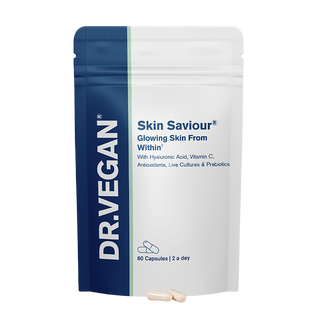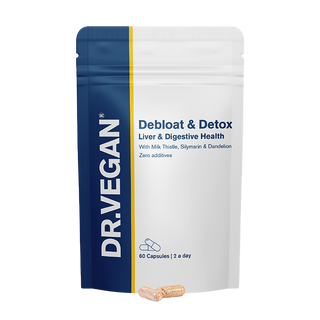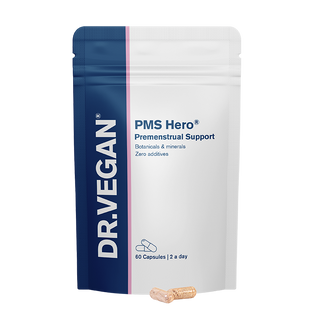Is wine good for you?

Have you ever topped up your glass of wine thinking, “Hey, it’s good for my heart, right?”. Well, this has long been a topic of debate. Research into drinking wine is contradictory, moderate consumption of wine has frequently been praised for its heart health benefits, while other studies have found health risks.
Hear from Nutritionist, Clódagh Ní Chléirigh, explain the risks and potential benefits of wine, its impact on health, and some top tips for drinking wine.
Is a glass of wine healthy?
The truth is that the evidence is fairly mixed. Drinking wine, especially red wine, has been speculated to be a healthier choice than white wine and has previously been linked to a multitude of health benefits including helping lower blood pressure.
However, the evidence that drinking wine, or alcohol in general, can help you avoid heart conditions is pretty limited, and many studies have been of insufficient duration. You may also enjoy our free drinks recipes, including tasty 'mocktails' giving the flavour of an alcoholic drink without the alcohol.
5 risks of alcohol consumption
Here are five of the biggest health risks from consuming alcohol.
1. Organ damage
Despite the potential benefits associated with drinking small amounts of red wine, alcohol is still a toxin and drinking beyond moderation can lead to serious damage to your organs including the liver, your brain, heart and blood vessels and pancreas.
Discover the best foods for detoxing the liver.
2. Inflammation
Excess consumption of wine can lead to inflammation in your body which can pave the way for chronic conditions like cardiovascular disease, non-alcohol liver disease, type 2 diabetes and Alzheimers. So if you do drink wine, do so in moderation.
3. Sleep disruption
Perhaps surprisingly, 1 in 3 people suffer with poor sleep. Although a glass of wine in the evening may make you feel sleepy, it also may disrupt your sleep by making you wake up more often during the night leading to a less restful night's sleep. Hear from our nutritionists how diet can support sleep quality.
Anxiety is also a very common cause of poor sleep, caused by high levels of cortisol which can be amplified by alcohol. Learn more in 'What is cortisol'.
4. Worsening PMS symptoms
One of the lesser-known side effects of drinking wine is the worsening symptoms of premenstrual syndrome (PMS). Too much wine can exacerbate mood swings, irritability and bloating which are among the most common symptoms of PMS, as shown in the latest customer survey on PMS.
PMS Hero®, an advanced formula to for PMS.
5. Weight gain
Most of the calories in wine come from the alcohol, which provides seven calories per one gram, and the remainder comes from carbohydrates. These ‘liquid calories’ contribute to weight gain, particularly around the stomach.
Our top tip: To reduce your calorie intake from wine, try choosing dry white wine or red wine instead of sweet white wine, and order smaller glasses!
See our nutritionist's advice for managing weight.
Potential benefits of wine
There's a growing consensus that drinking one or two glasses of red wine is better than other types of alcohol. A study found that people with conditions such as high blood pressure and high blood sugar saw improvements in the levels of beneficial bacteria in their gut after drinking red wine. However, it was found the reported links in the study could be due to other lifestyle factors including increased physical activity, and a diet high in fruits and vegetables, and lower in saturated fats rather than alcohol.
You may also like to read how alcohol impacts libido, and not in the way you may expect!
Antioxidants
The benefits of wine are largely due to the plant compounds known as 'polyphenols' which are a group of defence chemicals known as antioxidants. They are found in red and purple grape skins (as well as many other fruits, vegetables, and nuts) which are crushed to make wine.
Regularly consuming polyphenols can help your heart, digestion, eye health and brain health. So it’s these polyphenols which explain why studies have consistently shown red wine to be more beneficial for the heart than other types of alcohol.
So, we can justify our heavy pours, right? Not quite. Due to the alcohol content, wine should only be consumed in moderation. The same type of polyphenols is also found in dark chocolate, grapes, blueberries and peanuts which don't have the downside of wine, so you should add those to your diet instead!
Alcohol and gut health
There is plenty of research to show that our gut health and microbiota can influence our overall health - including better heart health and our metabolism.
From a gut health perspective, alcohol can affect every part of the digestive system. When we drink alcohol, our gut becomes ‘leaky’, making it more sensitive to the foods we are eating.
Gut Works® is an advanced formula of clinically studied probiotics and prebiotics for complete gut health, IBS and providing daily support for your digestion, brain and immune health.
Studies have shown that, in small amounts, red wine is beneficial for the microbiota diversity of the gut, which is believed to be due to the numerous polyphenols in wine which act as fuel for microbes. As a result, it seems that drinking red wine occasionally, such as once every two weeks, is enough to improve your gut health.
If you must choose one alcoholic drink, red wine is the one to pick as it exerts a beneficial effect on your gut microbiome. In saying that, when too much sugar is added while wine is being processed your gut, it can impact your gut's ability to digest the wine properly and can lead to inflammation.
Our gut and our gut bacteria do not like an excess of alcohol, so as with all things, we should listen to our gut.
Gut Works® provides daily support for your digestion, brain and immune health.
How wine can impact your skin
The occasional drink typically does not present health issues, however, frequent and excessive drinking can lead to several problems with the skin, including breakouts and flushing of the skin.
It is well known that alcohol is a 'diuretic', which means it causes the body to make and release more urine, resulting in the body losing more water and salt than usual. Hangovers tend to arise as a result of this. As a consequence, alcohol causes the body to dehydrate and takes all the fluid out of the skin, causing dry skin and decreased elasticity.
Read about foods to support your liver and help you through a hangover too.
Wine contains 'sulfites' that protect it from spoiling, which is why it gets better with age. However, those sulfites can also trigger skin redness and irritation. Excessive alcohol consumption can contribute to the skin’s premature ageing in the long term, in addition to bloating, puffiness and dullness the following day.
Skin Saviour®

Try our Skin Saviour® science-led formula packed with gut-friendly bacteria for clearer, glowing skin.
3 expert tips when it comes to drinking wine
1. Choose vegan wine
For vegan, sustainable and ethical wines, you may like to try Laylo Wine. We spoke to the wine experts themselves, who explained why spending a bit more on wine, without breaking the bank, really does relate to quality.
"In every bottle sold in the UK there are a number of fixed costs, which don’t scale significantly whether you’re buying a £5 Pinot Grigio or a £500 Chateau Mouton Rothschild. These include duty, the packaging and transportation - and amount to roughly £2.85. Then there’s VAT (20%) and the retailer margin, which is a reasonably consistent percentage for everyday drinking wines.
All this combined means that the actual amount spent on the juice in the bottle is roughly 25p in a £5 bottle, but £2.64 in a £10 bottle. By spending £5 more you’re getting wine of 10x higher quality.
Put simply, it’s not linear. By spending a few extra pounds you can feel confident you’re drinking a significantly better wine!" - Laylo Wines
2. Hydrate!
Drink a glass of water between each alcoholic drink - alcohol consumption can lead to dehydration and a horrible hangover the next day. Make sure you’re consuming water between alcoholic drinks (and most certainly the next morning), to help replace lost fluids.
Consuming water between drinks, and before bed, minimises the effect on your skin and bodily organs and can keep you from drinking more alcohol in the meantime which you’ll be pleased about the following day! You can also stock up on electrolytes, such as pickle juice or coconut water, to help replenish after drinking. You can also take ORS Hydration after drinking wine and before bed.
3. Don’t skip eating
If you’re going to drink alcohol, then avoid consuming it on an empty stomach and eat something before you go out to line your stomach. Drinking alcohol on an empty stomach means alcohol is absorbed into the bloodstream more quickly, which intensifies the side effects of drinking. Having wine with food helps to slow this process down and protects your liver. For inspiration on balanced meals, head over to our recipes section for some ideas.
Choosing zero or low-alcoholic drinks: if drinking isn’t your thing, or you just feel in the mood to give it a miss, non-alcoholic drinks might be the option for you. They offer a similarly great flavour without adverse effects. For non-alcoholic beer, try Big Drop Brewing Co.
The bottom line
While research points to some health benefits of red wine, it’s wise to limit your intake of all types of alcohol. While there are some health benefits to drinking wine, you can gain similar benefits through changes in your dietary pattern, sleep habits and exercise. The bottom line: Enjoying wine in moderation is key!
Alcohol recommendations
Health practitioners agree that all types of alcohol should be consumed in moderation. The need for moderation is due to the health risks involved with alcohol consumption. Plenty of research has indicated that the overconsumption of alcohol can increase your risk of developing cardiovascular disease and certain types of cancers.
The Department for Health recommends that if you are a regular drinker, i.e. you drink most weeks, you should aim to drink no more than 14 units per week, spread the units evenly over three or more days, which equals roughly six 175ml glasses of wine, and you should have several drink-free days each week. And if you don’t drink alcohol, you shouldn’t start!
You can learn more about the drinking guidelines from the Chief Medical Officers in the NHS here: Alcohol advice.
Here are some resources and information for reducing alcohol intake.
Discover our range of vegan probiotics, vitamins and supplements.
What to hear more from our nutritionists? Sign up to our newsletter for free expert tips and advice:
References
- Goel, S., Sharma, A., & Garg, A. (2018). Effect of alcohol consumption on cardiovascular health. Current cardiology reports, 20(4), 1-10.
- Tasnim, S., Tang, C., Musini, V. M., & Wright, J. M. (2020). Effect of alcohol on blood pressure. Cochrane Database of Systematic Reviews, (7).
- Caroline I. Le Roy, Philippa M. Wells, Jiyeon Si, Jeroen Raes, Jordana T. Bell, Tim D. Spector. Red Wine Consumption Associated With Increased Gut Microbiota α-diversity in 3 Independent Cohorts. Gastroenterology, 2019; DOI: 10.1053/j.gastro.2019.08.024
- Moreno-Indias I, Sánchez-Alcoholado L, Pérez-Martínez P, Andrés-Lacueva C, Cardona F, Tinahones F, Queipo-Ortuño MI. Red wine polyphenols modulate fecal microbiota and reduce markers of the metabolic syndrome in obese patients. Food Funct. 2016 Apr;7(4):1775-87. doi: 10.1039/c5fo00886g. PMID: 26599039.
- Purohit V, Bode JC, Bode C, Brenner DA, Choudhry MA, Hamilton F, Kang YJ, Keshavarzian A, Rao R, Sartor RB, Swanson C, Turner JR. Alcohol, intestinal bacterial growth, intestinal permeability to endotoxin, and medical consequences: summary of a symposium. Alcohol. 2008 Aug;42(5):349-61. doi: 10.1016/j.alcohol.2008.03.131. Epub 2008 May 27. PMID: 18504085; PMCID: PMC2614138.
- Gupta H, Suk KT, Kim DJ. Gut Microbiota at the Intersection of Alcohol, Brain, and the Liver. Journal of Clinical Medicine. 2021; 10(3):541. https://doi.org/10.3390/jcm10030541
- Haseeb S, Alexander B, Baranchuk A. Wine and Cardiovascular Health: A Comprehensive Review. Circulation. 2017 Oct 10;136(15):1434-1448. doi: 10.1161/CIRCULATIONAHA.117.030387. PMID: 28993373.
- Droste DW, Iliescu C, Vaillant M, Gantenbein M, De Bremaeker N, Lieunard C, Velez T, Meyer M, Guth T, Kuemmerle A, Chioti A. A daily glass of red wine and lifestyle changes do not affect arterial blood pressure and heart rate in patients with carotid arteriosclerosis after 4 and 20 weeks. Cerebrovasc Dis Extra. 2013 Oct 5;3(1):121-9. doi: 10.1159/000354847. PMID: 24403903; PMCID: PMC3884179.
- Pavlidou E, Mantzorou M, Fasoulas A, Tryfonos C, Petridis D, Giaginis C. Wine: An Aspiring Agent in Promoting Longevity and Preventing Chronic Diseases. Diseases. 2018 Aug 8;6(3):73. doi: 10.3390/diseases6030073. PMID: 30096779; PMCID: PMC6165230.
- Adjemian MK, Volpe RJ, Adjemian J. Relationships between Diet, Alcohol Preference, and Heart Disease and Type 2 Diabetes among Americans. PLoS One. 2015 May 11;10(5):e0124351. doi: 10.1371/journal.pone.0124351. PMID: 25961601; PMCID: PMC4427330.




















